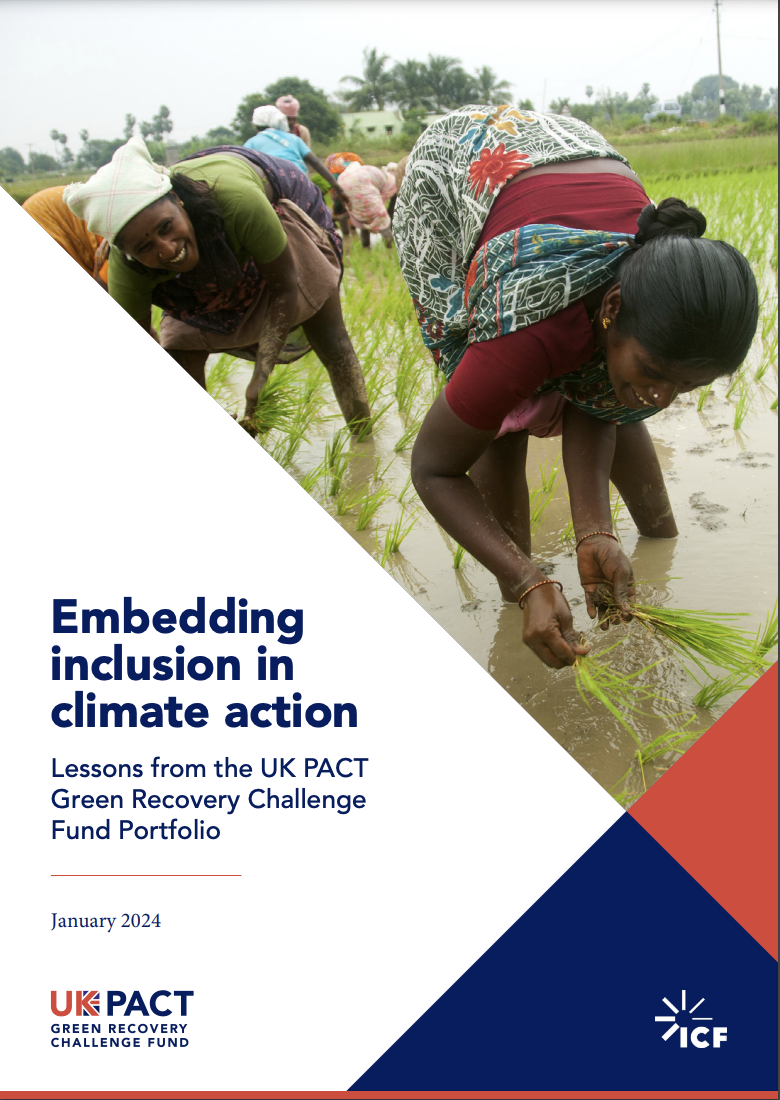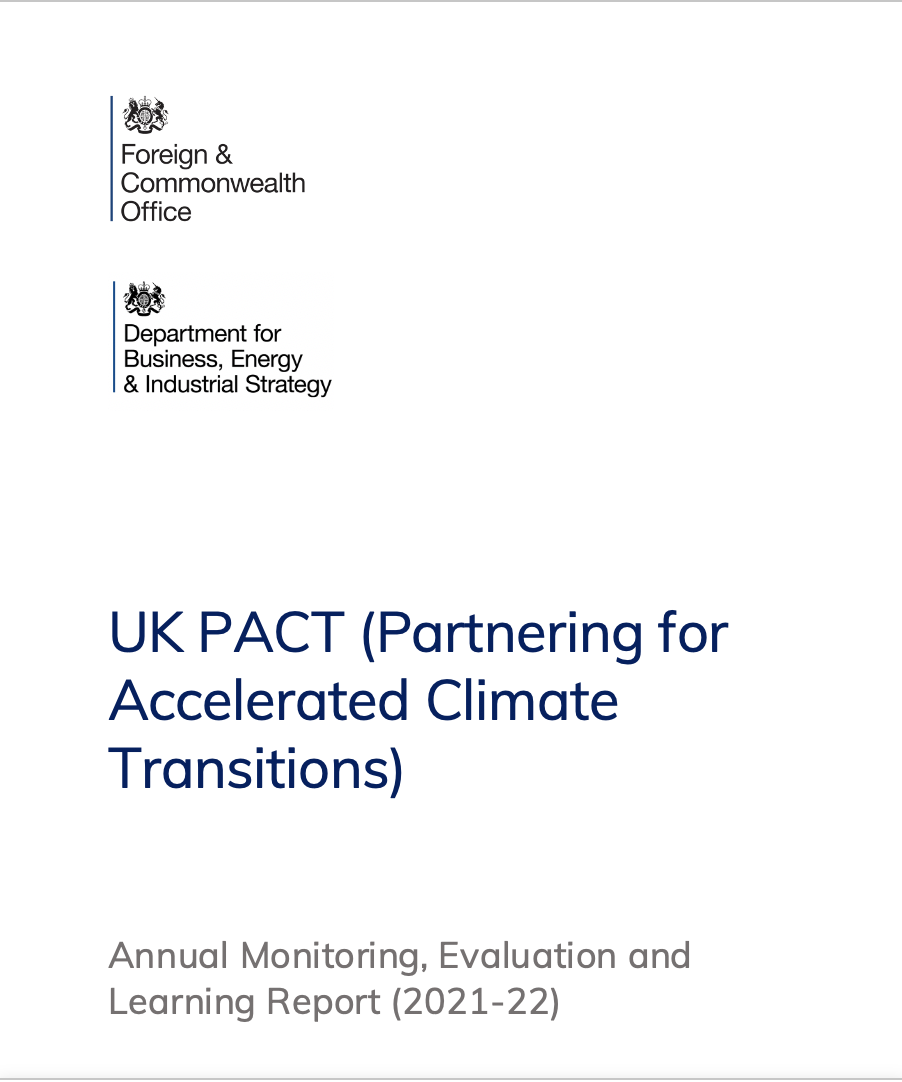UK PACT (Partnering for Accelerated Climate Transitions) is a flagship programme under the UK’s International Climate Finance (ICF) portfolio. The programme is jointly governed and funded by the Foreign, Commonwealth and Development Office (FCDO) and the Department for Energy Security and Net Zero (DESNZ). The UK is committed to tackling climate change and is investing £11.6bn via ICF over the five years to March 2026. UK PACT was established in 2018 with £70m funding for an initial three-year period. In September 2021, the UK Prime Minister announced £200m of new funding for UK PACT to continue its delivery and grow as a programme over the next four years to March 2026.
UK PACT works with partner countries, supporting them to accelerate their clean growth transitions.
The programme supports countries eligible for Official Development Assistance (ODA) to implement and increase their ambitions for carbon emissions reductions in line with their Nationally Determined Contributions (NDCs) and the long-term goal of the 2015 Paris Agreement to limit dangerous climate change.
UK PACT is delivered through three key mechanisms:
- Country Programmes: support to innovative capacity-building projects in partner countries, which deliver activities in line with country context and demand from government stakeholders.
- Green Recovery Challenge Fund: support to innovative capacity building projects in a wider range of ODA-eligible countries to promote emissions reductions and low-carbon solutions.
- Skill-shares and Secondments: provision of short-term peer-to-peer skill shares with country counterparts and long-term secondments into key institutions.
For more information visit the ‘About Us’ page of our website: ww.ukpact.co.uk/about

/Publication%20covers/Community-focused%20decentralised%20energy%20systems.png)
/Publication%20covers/Just%20energy%20transition.png)
/Publication%20covers/Greening%20finance.png)
/Publication%20covers/Financing%20green.png)
/Publication%20covers/GESI.png)
/Publication%20covers/Mobility.png)
/Publication%20covers/Nature.png)






/Reports/MEL%20Introduction.png)
/Reports/3.%20MEL%202021.png)
/Reports/Screen%20Shot%202021-11-02%20at%206.38.21%20PM.png)
/Reports/Evaluation%20methodological%20annex.png)
